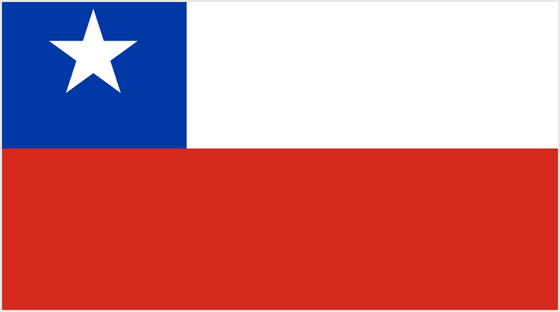-
Services
-
Software Project Delivery
-
Services
-
Solutions
-
Technologies
-
-
Network
-
Discover
-
Regions
-
Industries
-
Must-Read Guide
-
2026 Global Software Outsourcing Rates and Trends GuideDiscover why rates are just one aspect of the Accelerance Global Software Outsourcing Rates & Trends Guide, which offers valuable insights into the software development landscape.
-
-
-
Resources
-
Our Resources
-
Newest White paper
-
Aviation Ecosystem Modernization: A Holistic Approach for Meaningful TransformationModernize aviation by integrating people, processes, technology, and data
-
-
New eBook
-
 The True Cost of Software DevelopmentHidden costs can wreck your budget. Our new eBook breaks down the true cost of outsourcing—get your copy to stay ahead.
The True Cost of Software DevelopmentHidden costs can wreck your budget. Our new eBook breaks down the true cost of outsourcing—get your copy to stay ahead.
-
-
Featured White paper
-
Flow & Process OptimizationIn this white paper, you'll learn to streamline workflows, improve change management, and accelerate results.
-
-
-
About
-
About Accelerance
-
Our History
-
Accelerance: Our HistoryThere's great talent everywhere and great teams everywhere, which is the basis of the Accelerance model.
-
-
Software Without Borders
-
New Episode Every Week!Tune into our podcast Software Without Borders, the essential listen for technology leaders and business owners in the software sector who crave insights from the industry’s top minds.
-
-
Andy's Book
-
Synergea: A Blueprint for Building Effective, Globally Distributed Teams in the New Era of Software DevelopmentPeople are first and locations are secondary when it comes to software development success.
-
-
- Our Clients
Chile
Harnessing Top Talent: Why Chile is the Perfect Partner for Your Software Development Project.

Overview
The “Chilecon Valley” is an emerging outsourcing market for software engineering teams. Not only do programmers in Chile have top skills and a high educational level, but the country's tech scene has a thriving startup culture, with hubs clustered in Santiago, Valparaìso, and Concepciòn. Entrepreneurs at the Start-Up Chile incubator, a Santiago-based seed accelerator, have generated sales worldwide with a total value of more than $1 billion over the past decade. Chile also has a solid ecosystem for doing business, cost-effective rates, and a compatible time zone with the US.
Buoyed by strong projected expenditure on research and development, Chile intends to invest heavily in preparing more Full-Stack, Front-End, and AI specialists to meet rising demand. A national policy on artificial intelligence outlines strategic goals for the next 10 years based on three pillars: fostering necessary elements for the development of AI, promoting the development and adoption of AI, and ethics and security. Some 70% of local companies already use AI tools to improve their processes.
The Accelerance Global Network is the most curated list of high-quality global teams ever assembled.
150
Developers
Total number of developers in our certified partner network by country
2
Certified Partners
Total number of certified partners in our global network by country.
11hrs
Time Travel (From NY)
Average flight time from NY to the major cities in the country.
40
Partner Innovation capability
The score reflects investment in STEM progrms and IT funding by country.
88
Partner Skill Level
Level of workforce skills and quality of education, including factors such as digital literacy, interpersonal skills, etc.
60
Partner Global Competitiveness
National productivity based on 12 core pillars, including government policy, infrastructure, economic stability, etc.
High
Software Outsourcing Readiness
Overall rating, based on the maturity of the tech sector, socio-political conditions, and on-the-ground research by Accelerance.

Talent Pool & Education
Chile’s IT sector has the highest potential for expansion in the region, with a compound annual growth rate of 8.55% from 2022-2027, according to market research company Technavio. Key drivers are the integration of artificial intelligence by Chilean companies, the rise of digital information, and IT services in education and training, consulting, development and integration, and hardware and software support. Internet penetration, at 91% of the population, is the highest in Latin America, and 5G coverage is projected to reach a similar level by 2025.
Pontificia Universidad Católica de Chile in Santiago takes the number one spot in Latin America’s World University Rankings, and Chile has another 31 listed universities. According to the OECD, 30% of first-time students enroll in STEM courses – more than any other field. The country has one of the largest earnings premiums for tertiary-educated adults, and specialist professional skills are sought after across the tech sector.
More than 50% of companies in Chile intended to increase their budget for cloud migration in 2023. A shift towards nearshoring, reflected by increased demand from US companies looking to Latin America’s compatible time zones and business culture, is putting further pressure on the talent supply. In 2024, the country’s IT outsourcing market is expected to reach $657 million, with strong projections for future growth.
Language
Spanish is the primary language among the general population. English fluency is not widespread in Chile but is more common in the major cities, especially the capital Santiago, and within the business community.

Economic Outlook
Chile experienced a modest decline in its GDP growth rate in 2023, attributed to weakened domestic demand and constrained credit conditions. Now, the economy is poised for a resurgence, with growth rates projected to rebound in the next two years. The anticipated recovery is underpinned by expectations of resilient external demand for copper and lithium exports, disinflation, and an aggressive easing cycle pursued by the Banco Central de Chile (the central bank), which will bolster private consumption and investment.
A recent International Monetary Fund report credits the bank’s quick action and robust policies for the decline in inflation while adding a note of caution on the pace of further monetary easing. Richly endowed with solar and wind, Chile has a comparative advantage in renewable energy production, notes the IMF, and the potential to “both contribute to and benefit from the global green transition”.
Reliant on export-oriented sectors such as mining, agriculture, and forestry, Chile has seen firm growth in agricultural GDP over the past three years, reaching $28.9 billion in 2023. Inherent risks include a potential slowdown in China and the country’s vulnerability to drought. In the worst-hit Atacama and the Coquimbo regions, the planted area is decreasing sharply and producers have few alternatives to table grapes.
Political Conditions
At the age of 35, Gabriel Boric of the left-wing Unity for Chile coalition became the youngest president in the country’s history after being elected in 2021 with a record-high number of votes. That same year, Chileans voted for reform to replace the constitution, a legacy of the country’s military dictatorship – a central issue that remains unresolved today.
The current charter has been long criticized for contributing to inequality in the country, through its emphasis on private property rights, including those over natural resources, and failure to offer social welfare guarantees. Two draft proposals were rejected in 2023 and another vote seems unlikely in the coming year as the Boric government focuses instead on other pressing issues.
According to the Economist Intelligence Unit, politics will be dominated by efforts to pass key tax and pension reforms and to establish a state-owned lithium company. However, ongoing political polarization, social divisions, and low approval ratings pose challenges, boosting right-wing opposition to those initiatives. Other proposals, such as streamlining environmental approvals for major mining and infrastructure projects, face less resistance and are considerably more likely to pass. The next general election is scheduled for November 2025.
Learn more about our customer stories.
Looking for a customer story in a specific technology or industry? Discover compelling customer narratives within a specific technology or industry that resonate with your unique software development needs.
